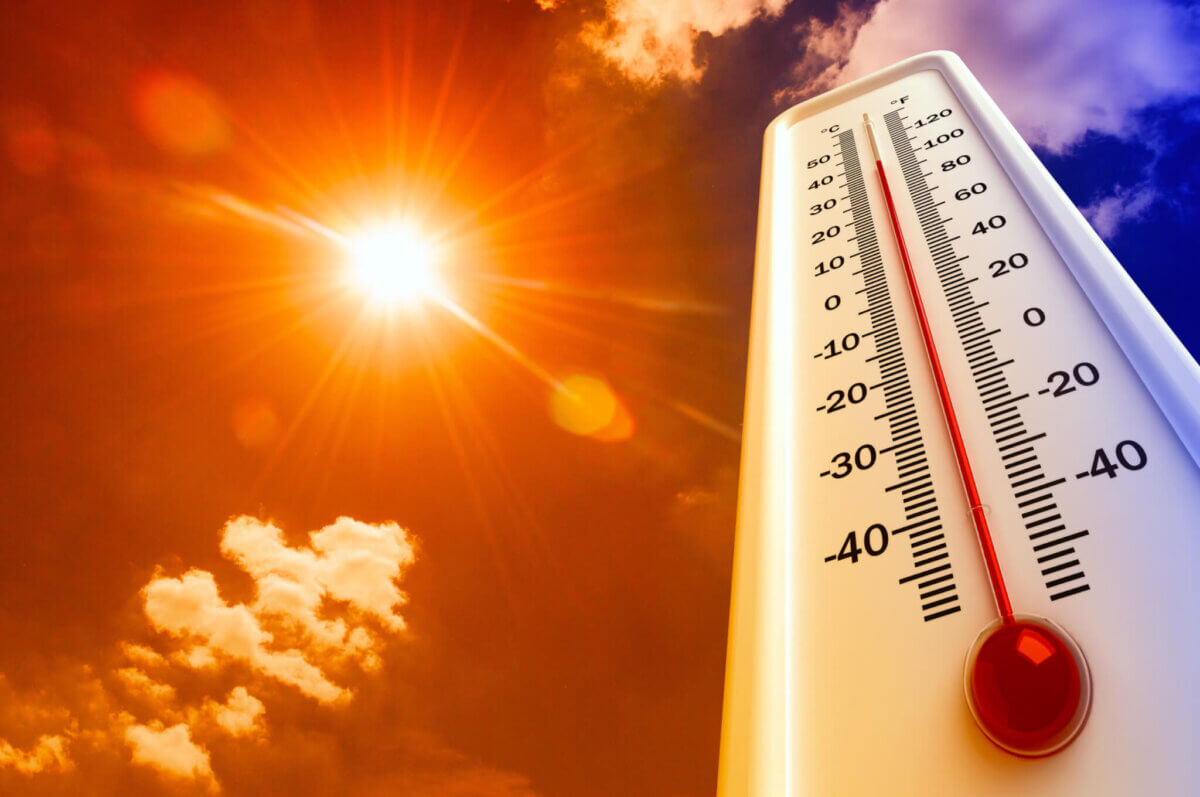DALLAS — As extreme heatwaves are in the forecast for several regions throughout the United States this summer, a new study warns that high temperatures and air pollution can double the risk of suffering fatal heart attacks.
This research, analyzing data from a single Chinese province over five years, found a significant correlation between the risk of heart attack fatalities and days marked by extreme heat, extreme cold, or high levels of particulate matter in the air. The study also revealed an increase in deaths from heart attacks during extremely hot periods among women compared to men and in older adults versus younger people. Concerningly, the data also shows that the risk of fatal heart attacks intensifies the longer an extreme weather event lasts.
The Chinese scientists who conducted the study aim to utilize their findings to prevent future heart attack deaths. They recommend those at high risk stay indoors and avoid polluted air during heatwaves. The data could be invaluable in advising citizens in Europe, currently experiencing one of the most severe and prolonged heatwaves in the continent’s history.
Published in the American Heart Association’s flagship journal, Circulation, the study examined data from over 200,000 heart attack deaths. These fatalities took place in Jiangsu province of eastern China – a region with four distinct seasons and a wide range of temperatures and pollution levels – between 2015 and 2020.
The majority of deaths were among older adults, with an average age of 77.6, and over half (52%) were 80 or older. The deaths were essentially even in terms of gender, with only a slight increase in men dying in extreme weather (52% male, 48% female). The study accounted for fine particulate matter exposure by measuring on each day of death and the preceding day.

The study took into consideration extreme temperatures, measured by the daily heat index, capturing the combined effect of heat and humidity. Researchers also evaluated the duration and severity of heatwaves and cold snaps. Days with recorded heart attack deaths were compared to “control days” – other days in the same month and weekday.
High particulate levels were defined as an average level of fine particulate matter above 37.5 micrograms per cubic meter.
Comparing to control days, the study found that the risk of fatal heart attacks increased by a fifth (18%) during two-day heatwaves, with the risk escalating with the temperature and duration. For instance, the risk was 74 percent higher during heatwaves lasting four days.
Out of the total 202,678 heart attack deaths, 6,417 (3.2%) occurred during heatwaves with heat indexes in the top five percentile, ranging from 91.2 to 104.7 degrees Fahrenheit (33°C – 40.4°C) for three or more days.
Similarly, the risk was found to be four percent higher during two-day cold snaps with temperatures in the lowest ten percentile (33.3 to 40.5 degrees Fahrenheit; 0.7°C to 4.7°C), escalating with lower temperatures and duration.

Importantly, the study showed the risk of fatal heart attacks doubled during four-day heatwaves coupled with fine particulate pollution levels above 37.5 micrograms per cubic meter. However, high levels of fine particulate pollution during cold snaps did not similarly elevate heart attack death risks.
The study also revealed higher heart attack fatalities among women than men during heatwaves and among those 80 and older during heatwaves, cold snaps, or days with high levels of pollutants.
According to World Health Organization targets, the researchers estimate that up to 2.8 percent of heart attack deaths may be attributed to the combination of extreme temperatures and high levels of pollution. Dr. Yuewei Liu, a senior author of the study, warns that the study’s findings have troubling implications, given the increasing frequency and severity of heatwaves worldwide.
“Extreme temperature events are becoming more frequent, longer and more intense, and their adverse health effects have drawn growing concern. Another environmental issue worldwide is the presence of fine particulate matter in the air, which may interact synergistically with extreme temperatures to adversely affect cardiovascular health,” says senior author Yuewei Liu, M.D., Ph.D., an associate professor of epidemiology in the School of Public Health at Sun Yat-sen University in Guangzhou, China.
“However, it remains unknown if and how co-exposure to extreme temperatures and fine particulate pollution might interact to trigger a greater risk of death from heart attack, which is an acute response potentially brought on by an acute scenario and a great public health challenge due to its substantial disease burden worldwide,” Dr. Liu continues in a media release.

However, Dr. Liu adds that the study’s findings could be useful in developing strategies to avoid fatal heart attacks among those at high-risk.
“Strategies for individuals to avoid negative health effects from extreme temperatures include following weather forecasts, staying inside when temperatures are extreme, using fans and air conditioners during hot weather, dressing appropriately for the weather, proper hydration and installing window blinds to reduce indoor temperatures,” Liu says.
“Using an air purifier in the house, wearing a mask outdoors, staying clear of busy highways when walking and choosing less-strenuous outdoor activities may also help to reduce exposure to air pollution on days with high levels of fine particulate pollution. To improve public health, it is important to take fine particulate pollution into consideration when providing extreme temperature warnings to the public.”
Dr. Liu’s team admits that additional research about the possible interactive effects of extreme weather events and fine particulate pollution on fatal heart attacks in areas with differing temperature and pollution ranges was necessary to confirm the findings.
South West News Service writer James Gamble contributed to this report.
You might also be interested in:
- Scientists: Earth’s average temperature inching up will cause deadly heatwaves
- Arctic Ocean could be ice-free in summer by 2030s, scientists say
- Global warming: Here’s where climate change could lead to record-setting heatwaves soon




